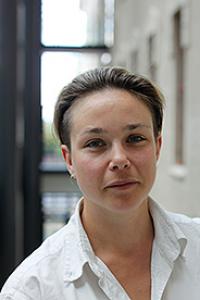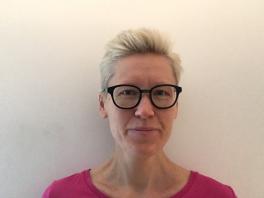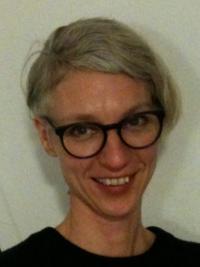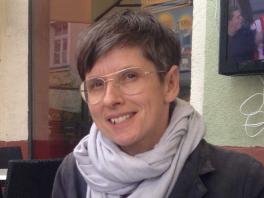Community Partnerships and Service Learning
With a deep commitment to engaged scholarship, we are grateful to our deeply committed faculty who have expanded service-learning courses that allow students to apply their coursework in the community.
Professor Linda Mizejewski - WGSST 2326(S) - Feminist Perspectives on Addiction (3 credit hours) This course offers a multicultural feminist perspective on women and addiction. Using an interdisciplinary approach, students will explore addiction within the contexts of social construction, popular culture, mental health, and public policy. Discussion topics explore the socially constructed meanings of addiction, gender, power, and privilege. Service learning offering combines the study of feminist scholarship on addiction with volunteer work at a local organization that provides services to persons with substance-abuse issues. Students will use the course materials and tools of analysis to think and write crtically about their volunteer experiences. Not open to students with credit for 326, 2326, or 2326S.
Professor Mary Thomas - WGSST 3300.01S - Feminist Perspectives of Incarceration in the US (3 credit hours) This course explains the growth in the US prison system and its punitive shift from feminist, anti-racist, and queer perspectives. Students will learn about the historical and ongoing disproportionate incarceration of the poor, people of color, and gender non-conforming people. This service-learning course is an Inside-Out Prison Exchange Program class to be offered in Spring semesters. Enrollment requires permission of the instructor.
Professor Mytheli Sreenivas - WGSST 4189.01S - Reproductive Rights and Justice (3 credit hours) Why is reproduction such a controversial issue, both in the US and in many parts of the world? What do we mean by reproductive rights, and what is the relationship between rights and reproductive justice? How do reproductive technologies—such as surrogacy, IVF, new contraceptives—shape reproductive politics? What is the relationship between reproductive rights, justice, and feminism? This course takes an interdisciplinary feminist approach to investigating the history and contemporary politics of reproduction beyond a “pro-life” vs. “pro-choice” dichotomy. It focuses on both US and global contexts and links the academic investigation to service learning in the Columbus community. Students will work with organizations who seek to further the goals of reproductive justice in policy, activist, legal, and healthcare contexts. Throughout, students will probe the connections between academic coursework and feminist practice, and to link theoretical study to their work in local communities. Prereq: WGSST 1110. Due to limited space, enrollment requires instructor permission.
International Scholars
The Department of Women's, Gender and Sexuality Studies welcomes national and international scholars to engage in interdisciplinary discussion and research. Gender, sexuality, race, class, and a variety of other topics span across societies and cultures, and we encourage studies in these areas, hoping to assist in holding englightening conversations on a global scale. We have had the pleasure of welcoming several scholars to the department over the years.

Erika Alm is a senior lecturer and the deputy head of the Gender Studies department at the University of Gothenburg in Sweden. She is invested in a number of subjects, including feminist theory, body politics, feminist materialism, and the cultural and social disciplining of non-normative expressions of sex and gender. Dr. Alm’s latest publications include “The Rainbow Flag as Frication: Transnational, Imagined Communities of Belonging among Pakastani Activists” (2016) and “Negotiating the (bio)medical gaze- Experiences of trans-specific healthcare in Sweden” (2017). She is continuing her work as lecturer and deputy head in Sweden. Visit Dr. Alm's page to learn more about her research.

Stina Ericsson is a professor of Swedish at Linnaeus University and an associate professor of Swedish at the University of Gothenburg. She spent the fall semester in 2016 at WGSS, teaching a graduate course on Queer Linguistics. Her research focuses on everyday interactions between people, investigating gender and sexuality normativities in such interactions. Her latest publications include Children’s Ongoing and Relational Negotiation of Informed Assent in Child-Researcher, Child-Child and Child-Parent Interaction (2017), The Language of Cisnormativity: Children and Parents in Interaction with a Multimodal App (2018), and a forthcoming chapter on Gender and Sexuality Normativities in The Routledge Handbook of Language, Gender and Sexuality. Visit Dr. Ericsson's pages to learn more about her research.

Tobias Linné is an assistant professor in the Department of Communication and Media of Lund University in Sweden. His research interests are in the fields of critical animal studies and critical media studies, reflected in his publications “Plant-based milk: From Obscurity to Visions of a Post-Dairy Society” (2017) and “Cows on Facebook and Instagram: Interspecies Intimacy in the Social Media Spaces of the Swedish Dairy Industry” (2016). Dr. Linné is the co-founder of the Lund University Critical Animal Studies Network, author of two books, and has contributed works in multiple mediums. He is continuing his work and teaching in Sweden. Visit Dr. Linné's page to learn more about his research.

Birgit Kaiser is an associate professor of Comparative Literature and Transcultural Aesthetics at Utrecht University in the Netherlands. Her research spans literatures in English, French, and German of the 19th to the 21st century, with special interests in aesthetics, affect, and subject-formation. She is the author of the book Figures of Simplicity. Sensation and Thinking in Kleist and Melville, and the editor of multiple books on the configurations of subjectivity. During her time at OSU, Dr. Kaiser worked on her book project on Hélène Cixous and a transcultural aesthetics of subject formation. Visit Dr. Kaiser's page to learn more about her research.

Kathrin Thiele is an associate professor in Gender Studies and the Department of Media and Culture Studies of Utrecht University in the Netherlands. Trained in transdisciplinary in Gender Studies, Sociology, Literary Studies, and Critical Theory, Dr. Thiele’s research focuses on questions of ethics from queer feminist, decolonial, and posthuman(ist) perspectives. Several of her publications have been released, such as The Thought of Becoming (2008) and multiple co-edited texts. During her time at OSU, she worked on the manuscript of her forthcoming book, A Different Difference: Immanence, Relationality and Entanglement in Contemporary Feminist Thought. Visit Dr. Thiele's page to learn more about her research.
